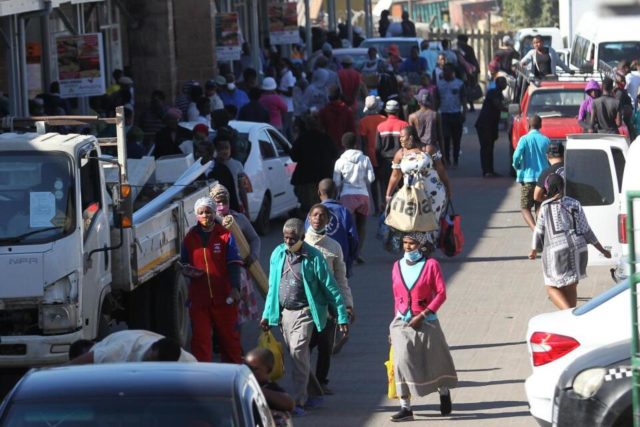Organisations said these grants should continue until a comprehensive plan for guaranteed basic outcomes has been put in place.
A CALL has been made for government to extend the R350 Covid-19 social relief of distress and the R585 caregiver grants.
In a statement, issued on Sunday by the Assembly of the Unemployed and Grant Claimant, Equal Education Gauteng, the South African Federation of Trade Unions and former public protector Thuli Madonsela, the organisations said that the grants were put into place as temporary relief measures but their removal now assumes that there is no longer a need for relief. Their termination would lead to a humanitarian crisis.
Data from the National Income Dynamics Study – Coronavirus Rapid Mobile Survey has revealed that the receipt of the SRD grant has been pro-poor and has helped stave off hunger while the caregiver grant has been especially important for supporting women-headed households.
Organisations said these grants should continue until a comprehensive plan for guaranteed basic outcomes has been put in place.
According to the statement, the country has an estimated population of 15 million people with very little to no income.
“The SRD and caregiver grants, along with top-ups to other grants, were rolled out to address immediate hunger and poverty, exacerbated by the pandemic. For the combined 12.7 million people receiving the SRD and caregiver grants, it has been a lifeline,” the statement read.
“Despite this, millions of people have been unjustly excluded from receiving the SRD grant due to the conditionalities attached to it. The SRD grant remains insufficient to cover basic food costs and is even less when shared amongst household members.
“There have also been administrative failures from Sassa and the Department of Social Development. We witnessed people sleeping in lines overnight in the cold outside Sapo and Sassa offices, only to be turned away the next morning.
“The gross exclusions can be attributed to challenges with the online and administrative processes such as applications being verified on a monthly basis against outdated databases, delays and glitches with payments and corruption within government departments,” the organisations said.
Applicants received unclear or no communication from the SA Social Security Agency and the appeal process is fraught with problems. The most urgent priority for the government is to continue and improve these emergency measures.
They said now was not the time to cut back as approximately 70% of adults live below the Upper Bound Poverty Line (UBPL) of R1,268 per person per month.
In June 2020, 37% of people ran out of money for food. This widespread poverty experienced by so many has played a significant role in how the mental health crisis has been exacerbated by the pandemic, with symptoms of depression ravaging the country. The pandemic is far from over and we could be entering a second wave of infections.
“Even before the devastation of Covid-19, South Africa was the most unequal country in the world and this pandemic has only made things worse: we are in the midst of an economic, health, and inequality crisis and the prospect of finding jobs is near impossible. We are likely facing our worst unemployment disaster in the history of our democracy, as people lose even the most meagre incomes. The SRD grant has brought millions of previously excluded people into the social security system,” the organisations said.
They added that it has provided crucial support for millions of people both directly and indirectly.
The organisations said job losses have affected low-income workers, women, informal workers, and those in rural areas the most and the primary claimants of the caregivers grant have been women.
“We have seen the gender wage gap double for poorer workers over the Covid period, which is why the #October7Shutdown protests centred the demand for gender equality. We believe that the extension of the caregivers grant will help cushion the worst backlash of the pandemic against women specifically.
“Without immediate intervention, these benefits will be terminated at the end of October, causing a humanitarian crisis with approximately 6.8 million people plunged below the food poverty line. Thus, both these grants must be extended as a matter of urgency,” the organisations said.
“Based on available estimates and assumptions of 5.6 million and 7.1 million respectively (at current levels of access), the extension of the SRD grant and caregiver grant at R585 per month will cost a combined R37 billion. At a fraction of spending proposals under consideration, this is a clear test of whether the government puts the interests of capital before people.
“All available information clearly suggests that the government has decided not to extend the grants at the end of October. Government’s decision to terminate the relief measures is irresponsible and reprehensible given the socio-economic realities of our country. This decision must be reversed. We urge government to fulfil its constitutional obligation to provide relief to the poor,” the organisations said.
They are expected to expound on the statement in a press briefing taking place later today.








